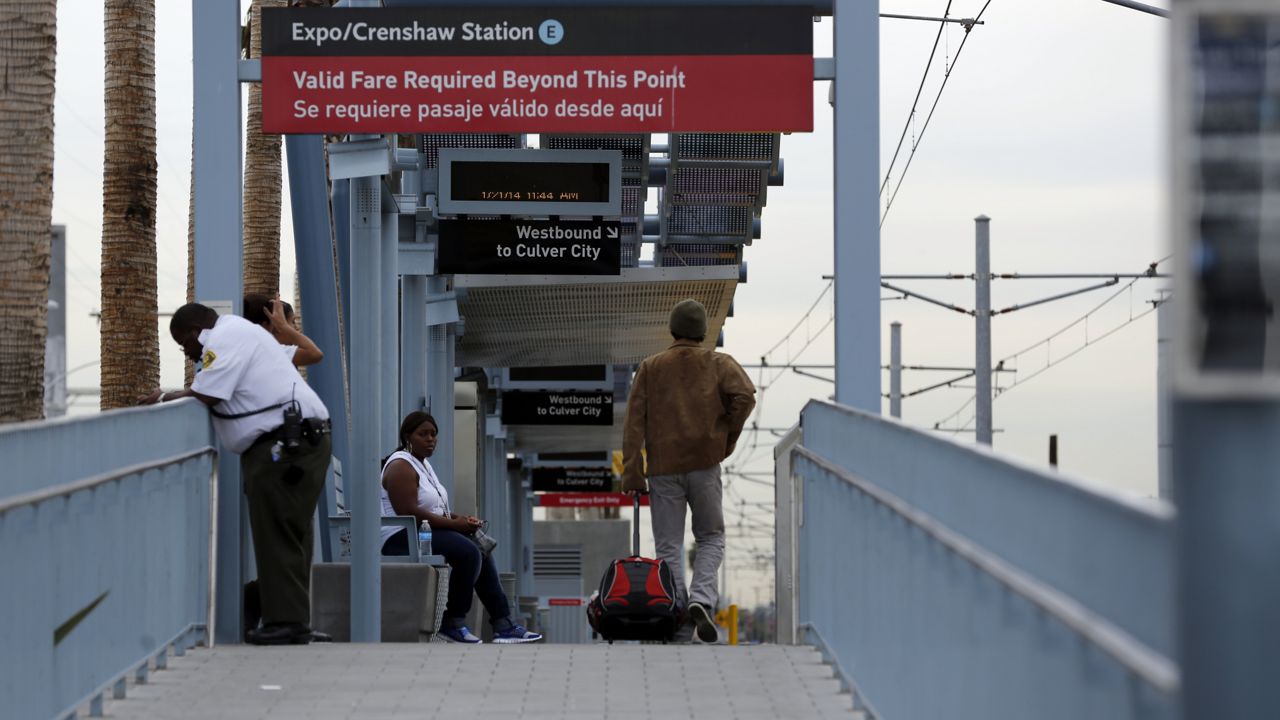LOS ANGELES (CNS) — The Los Angeles County Metropolitan Transportation Authority's Board of Directors Thursday voted to update its Joint Development Policy to prioritize building 100% income-restricted housing on unused Metro-owned land.
As of January, Metro's Joint Development team had completed 2,200 units of housing, 34% of which are considered affordable, according to Metro's website. It defines "affordable housing" as units for people who earn 60% or less than the LA County Area Median Income.
The board, which is chaired by Los Angeles Mayor Eric Garcetti, seeks to make the transit system more effective by ensuring that the surrounding land includes housing, jobs, schools and amenities. While it does not have land use authority, it works toward this goal by developing on unused Metro-owned land, which is typically leftover from construction projects.
"Transit-oriented development on Metro-owned land near transit stops helps families reduce the two largest household expenses — housing and transportation," said Metro CEO Stephanie Wiggins. "How we use our land can help make the difference between a thriving community for all versus one that doesn't work for low- and moderate-income families."
The updated policies approved by the board Thursday include:
- using income and rent data to set rents for income-restricted units in an effort to address neighborhood concerns around gentrification and displacement
- requiring at least 25% of units be set aside for households that earn less than 80% AMI in situations when 100% income-restricted projects are not feasible
- prioritizing projects where the need for housing is highest and will have the greatest benefit will be realized the fastest
- limiting parking requirements in an effort to maximize the amount of space for new housing units
- launching a "Housing Lab" to drive innovation around transit-oriented housing
- continuing the requirement for projects greater than 60 units to implement policies that encourage local employment, training opportunities and fair wages
"Angelenos want and deserve a city with affordable housing and improved transportation so every family can make their rent payments, every resident can get to work and school with ease, and every individual can access opportunity and prosperity, no matter where they live," Garcetti said. "This updated Joint Development Policy puts our priorities into practice — ensuring that future developments keep our City on a path toward a more sustainable, affordable and livable future."
During a January board meeting, Metro's Joint Development Team updated the board on its program's progress. At that time, Metro's portfolio consisted of 4,700 units, including those that were in the pipeline. About 37% were considered affordable.
Metro officials said it anticipates its portfolio to double over the next decade with the acquisition of 40 new sites. The program's goals focus on:
- increasing opportunity for people of all income levels to work, live and shop near transit
- providing access to opportunity for people who need it most
- delivering housing as soon as possible and with the least amount of environmental impact
- leading in housing innovations



